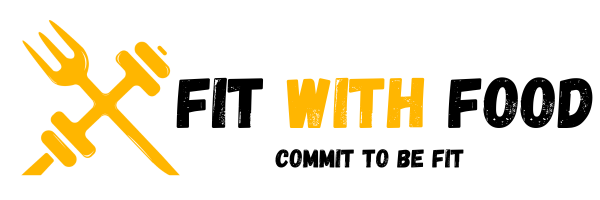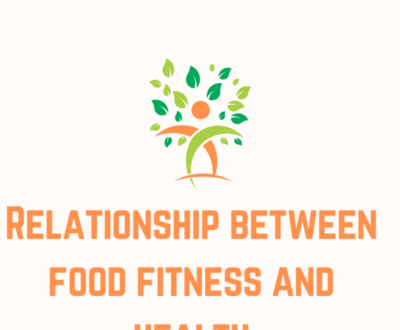Introduction
Hey there! If you’ve ever felt stuck in your weight loss journey, you’re not alone. It’s frustrating when progress slows down or comes to a halt. Understanding why this happens is crucial to overcoming these roadblocks and getting back on track towards your health goals.

Plateauing Metabolism
Metabolism refers to how your body converts food into energy. When you consistently eat fewer calories or exercise more to lose weight, your metabolism can slow down to conserve energy. This means your body burns fewer calories than before, making weight loss harder.
Lack of Variety in Diet
Eating the same foods every day can lead to nutrient deficiencies and cause your body to adapt, slowing down weight loss. Including a variety of foods ensures you get a range of nutrients and prevents your metabolism from stagnating.
Inconsistent Exercise
Regular exercise helps burn calories and maintain muscle mass, which boosts metabolism. Inconsistency in your exercise routine can hinder weight loss progress because your body doesn’t get the regular calorie-burning stimulus it needs.
Stress and Cortisol Levels
High stress levels trigger the release of cortisol, a hormone that can increase appetite and lead to cravings for unhealthy foods. Elevated cortisol levels over time can promote fat storage, particularly around the abdomen, making it harder to lose weight.
Lack of Sleep
Sleep is crucial for regulating hormones that control appetite (ghrelin and leptin) and metabolism. Poor sleep habits disrupt these hormones, leading to increased hunger and cravings, and making weight loss more difficult.
Fluid Retention
Water retention can be caused by factors such as excess sodium intake, hormonal changes (especially during menstruation), or certain medications. It can temporarily increase your weight and mask fat loss progress.
Not Drinking Enough Water
Dehydration can slow down metabolism and affect the body’s ability to burn fat efficiently. Drinking enough water helps maintain optimal metabolic function and can support weight loss efforts.
Hidden Calories
Foods like sauces, dressings, sugary beverages, and snacks often contain hidden calories that can add up quickly. Underestimating calorie intake can stall weight loss despite efforts to eat healthily.
Medical Conditions
Conditions such as hypothyroidism, polycystic ovary syndrome (PCOS), insulin resistance, and others can affect metabolism and make weight loss more challenging. Medications used to treat these conditions may also impact weight.
Genetics
Genetic factors can influence how your body stores fat and responds to diet and exercise. While genetics play a role, lifestyle changes can still positively impact weight management.
Age-related Changes
Metabolism naturally slows down with age, mainly due to loss of muscle mass. This makes it harder to burn calories and maintain a healthy weight as you get older.
Lack of Muscle Mass
Muscle tissue burns more calories than fat tissue at rest. Having less muscle mass lowers your basal metabolic rate (BMR), making it easier to gain weight and harder to lose it.
Over training
Excessive exercise without adequate rest and recovery can increase stress hormones like cortisol and lead to burnout. This can stall weight loss progress and even cause muscle loss.
Mindless Eating
Eating without paying attention to portion sizes or hunger cues can lead to overeating and consuming more calories than your body needs, hindering weight loss efforts.
Emotional Eating
Using food to cope with emotions, stress, or boredom can lead to excessive calorie intake and hinder weight loss progress. Addressing emotional triggers and finding alternative coping strategies is essential.
Hormonal Imbalances
Hormonal changes related to thyroid disorders, menopause, or insulin resistance can affect metabolism and lead to weight gain or difficulty losing weight. Managing these conditions with medical guidance is important.
Alcohol Consumption
Alcoholic beverages are high in calories and can contribute to weight gain if consumed in excess. Alcohol also reduces inhibitions, leading to poorer food choices and overeating.
Social Influences
Peer pressure, social events, and cultural norms can influence eating habits and food choices. These situations may lead to consuming more calories than intended and stall weight loss progress.
Lack of Planning
Not having a structured meal plan or exercise routine can lead to inconsistent habits and make it harder to achieve weight loss goals. Planning ahead can help you make healthier choices and stay on track.
Burnout or Lack of Motivation
Losing motivation or feeling burnt out from dieting and exercising can lead to inconsistency and hinder progress. It’s important to find activities you enjoy, set realistic goals, and practice self-care to maintain motivation.
Addressing these factors with targeted lifestyle changes, such as adjusting your diet, prioritising sleep, managing stress, and staying consistent with exercise, can help overcome weight loss plateaus and achieve long-term success.
conclusion:
So, the next time you find yourself stuck in your weight loss efforts, remember that plateaus are a normal part of the process. By making small adjustments to your routine, staying consistent, and setting realistic goals, you can break through those barriers and continue making progress on your journey to a healthier lifestyle. Keep pushing forward, and don’t let temporary setbacks derail your long-term success
About us and this blog
We are a digital marketing company with a focus on helping our customers achieve great results across several key areas.
Request a free quote
We offer professional SEO services that help websites increase their organic search score drastically in order to compete for the highest rankings even when it comes to highly competitive keywords.
Subscribe to our newsletter!
More from our blog
See all postsRecent Posts
- The role of rest and Recovery in fitness Progress August 29, 2024
- Mindful eating : how to listen your body hunger cues August 29, 2024
- Navigating the grocery story : tips for healthy shopping August 29, 2024








